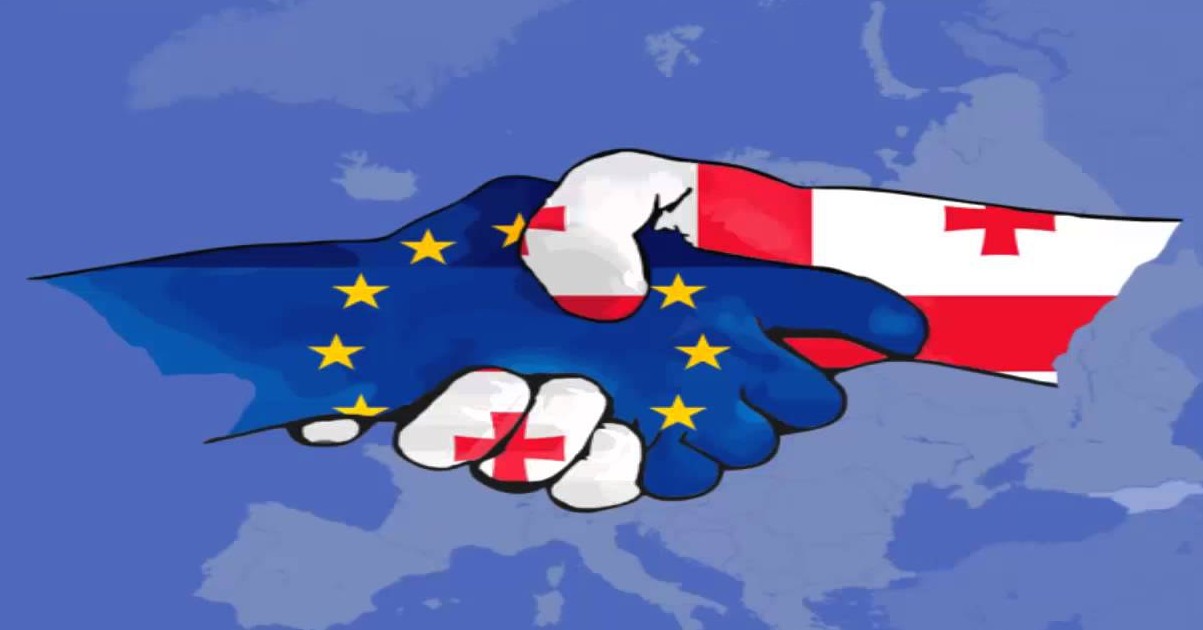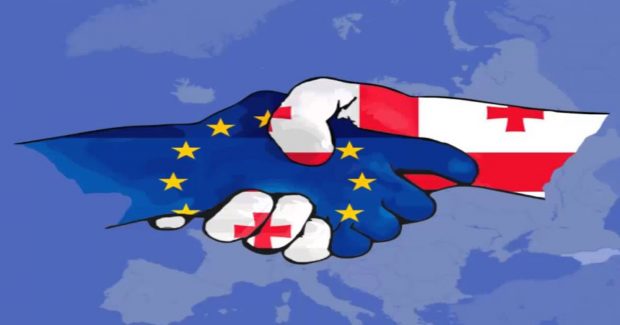
Big Victory for Georgia’s Westernization Progress: Visa Liberalization
 Significantly for the post-Soviet states, including the ones in the South Caucasus region, the EU has conducted ‘Visa Liberalization Dialogues’ with three Eastern Partnership countries, namely Ukraine, Moldova (the country has already obtained the right to visa-free travel in April 2014) and Georgia. Through these dialogues, the EU has taken gradual steps towards the long-term goal of visa-free travel on a case-by-case basis, provided that conditions for well-managed and secure mobility are in place.
Significantly for the post-Soviet states, including the ones in the South Caucasus region, the EU has conducted ‘Visa Liberalization Dialogues’ with three Eastern Partnership countries, namely Ukraine, Moldova (the country has already obtained the right to visa-free travel in April 2014) and Georgia. Through these dialogues, the EU has taken gradual steps towards the long-term goal of visa-free travel on a case-by-case basis, provided that conditions for well-managed and secure mobility are in place.
As the official website of the European Commission’s Directorate-General (DG) Migration and Home Affairs also confirms, the above mentioned dialogues, led by the DG Migration and Home Affairs, were built upon ‘Visa Liberalization Action Plans’ (VLAP), which include four blocks of benchmarks related to document security, including biometrics; border management, migration and asylum; public order and security; and external relations and fundamental rights. The benchmarks concerned both the policy and institutional framework (legislation and planning) and the effective and sustainable implementation of this framework.
The implementation of the Action Plans has been closely monitored by the European Commission through regular progress reports, transmitted to the EU Parliament and the Council, and which are publicly accessible. In addition, progress has been monitored through regular meetings of senior ranking officials from the European Commission and the partner countries.
Visa Liberalization Granted
The European Parliament has voted overwhelmingly to approve visa liberalization for Georgia, paving the way for Georgians to travel to the European Union’s Schengen zone without obtaining visas. European lawmakers backed visa liberalization, long anticipated in Georgia, by a vote of 553 to 66, with 28 abstentions. The voting process was preceded by debates between the MEPs.
Georgians will still have to wait for the European Parliament and the European Council to vote on a mechanism allowing for the suspension of visa-free regimes with countries, including Georgia and Ukraine, under certain circumstances once they are in place. In particular, the deal is believed to allow the European Commission and EU states to reinstate the requirement for a visa if countries fail to cooperate in taking back illegal migrants, there’s a spike in the number of asylum applications, or a security issue arises.
The suspension mechanism was given preliminary approval in December. Therefore, the visa-free regime between Georgia and the EU will go into force as soon as the suspension mechanism is activated.
When the process is complete, Georgian biometric passport holders will be able to enter the Schengen area, which includes 22 EU member states (excluding Ireland, the United Kingdom, Croatia, Cyprus, Romania and Bulgaria) in addition to Iceland, Liechtenstein, Norway and Switzerland, for 90 days within any 180-day period for a holiday, business or any other purpose, except work.
European and Euro-Atlantic Integration Minister of Georgia, Viktor Dolidze, believes that Georgians will be able to enjoy visa-free travel with all 26 countries (Austria, Belgium, the Czech Republic, Denmark, Estonia, Finland, France, Germany, Greece, Hungary, Iceland, Italy, Latvia, Liechtenstein, Lithuania, Luxembourg, Malta, the Netherlands, Norway, Poland, Portugal, Slovakia, Slovenia, Spain, Sweden, and Switzerland) in late March or early April.
Georgia’s Foreign Minister, Mikheil Janelidze commented on the decision, saying this step of the EP underlines that the EU strongly supports Georgia.
“We congratulate our citizens on this day. Our progress towards integration with the EU could not have been achieved if we hadn’t had firm support from our population and state agencies,” the Minister said, underlining that the positive result was the outcome of the government’s hard work and efforts.
Janelidze also noted that the Georgian government will also offer the benefits of visa liberalization to the residents of Georgia’s occupied regions Abkhazia and South Ossetia.
Georgia has long sought greater integration with Europe but has been frustrated with the pace the EU has moved to bring it closer.
The South Caucasus country has faced persistent efforts by Russia to increase its influence since the two former Soviet republics fought a five-day war in 2008.


